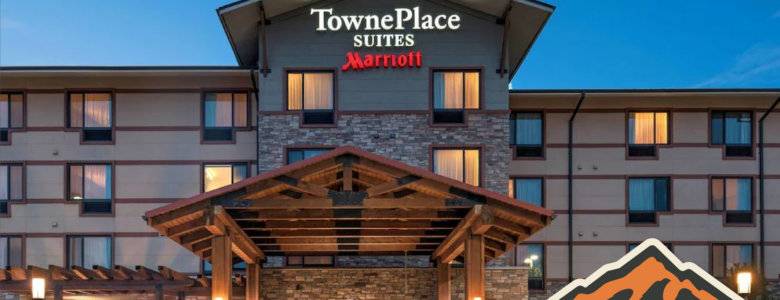Eagle Mountain has completed a comprehensive feasibility study aimed at evaluating the city’s capacity to attract and support a hotel.
Conducted by hospitality consulting firm HVS, the study equips City leadership with insights into the potential upside, as well as the logistics of hotel development in Eagle Mountain.
“The right hotels can be a catalyst for enticing other forms of commercial development highly desired by residents,” says Eagle Mountain Economic Development Director Evan Berrett.
The study was initiated to provide data to City leaders and potential developers.
Prior to engaging HVS, there was already interest from certain hotel chains; however, these companies required a third-party analysis before moving forward with any evaluations. As of now, there is no specific hotel proposal in Eagle Mountain, but the study’s findings may change that soon.
HVS’s evaluation focused on three potential sites, with an emphasis on the downtown area to ensure the findings would be broadly applicable across the community.
Eagle Mountain has multiple locations that could accommodate a hotel, but the downtown area was selected for its central location, reducing the need for additional studies and maximizing the study’s utility.
“This study helps hotel developers know a project will be successful broadly,” says Berrett. “Going forward, they will need to dedicate the time and resources to review in greater detail and negotiate for sites based on their requirements.”
The analysis included interviews with numerous hotel brands and management teams from Utah and Salt Lake Counties. The approach aimed to assess not only the potential utilization of a hotel but also to identify the best type of hotel for the area.
HVS found that Eagle Mountain has a significant and growing need for a hotel, with the potential to support more than one establishment in the near future.
Based on the study’s findings, HVS recommended the development of an upper-midscale to upscale extended-stay hotel. This facility could feature 120 to 140 guestrooms, a swimming pool, a market pantry, a fitness room, and up to 2,000 sq. ft. of meeting space.
The study also projects an impressive 83% occupancy rate by the third year, surpassing the industry benchmark of 75%, and an average nightly rate between $140 and $150.
The extended-stay model is expected to attract a mix of guests, including 48% business travelers, 32% leisure visitors, 9% group bookings (such as sports teams), and 12% extended-stay guests.
The development of a hotel in Eagle Mountain is seen as a crucial driver of economic development.
Hotels attract large employers who require nearby accommodations for their workforce and visitors. They also support tourism, which in turn boosts local businesses, including sit-down restaurants. Moreover, hotels are essential for hosting privately-run festivals, sports tournaments, and other large-scale events.
“Although we are not as close to I-15 as many other cities in Utah, we have a lot of what hotels look for,” says Berrett. “In my conversations with several brands, they are all very excited about Eagle Mountain.”
Eagle Mountain’s downtown area, while not yet defined, is set to be an integral part of the City’s development strategy.
The future downtown is likely to encompass Cory Wride Memorial Park and a significant portion of land to the east of the park across Pony Express Parkway. This area will feature centers of traditional retail and a Main Street district focused on small businesses.
City leadership is committed to involving the public heavily in the downtown planning process.
A lot of effort will go into ensuring that the new downtown area reflects the community’s needs and values.
“Residents and small-business owners will be the key contributors to designing a unique downtown that emulates who we are and becomes something we are truly proud of,” says Berrett.
In the context of downtown development, land owners and developers in the area are planning for a large commercial development with retailers, restaurants, and other commercial development in the near future.
It is unlikely that any hotel development will occur along Pony Express Parkway, particularly near the middle school, to ensure the suitability and convenience of the hotel’s location for all potential guests.
Moving forward, City leadership intends to maintain current building height regulations, requiring hotels to seek variances if height issues arise.
As the City considers these findings, the groundwork is being laid for future hospitality opportunities that could greatly benefit the community.
For more information about the study and future developments, residents can learn more here.


